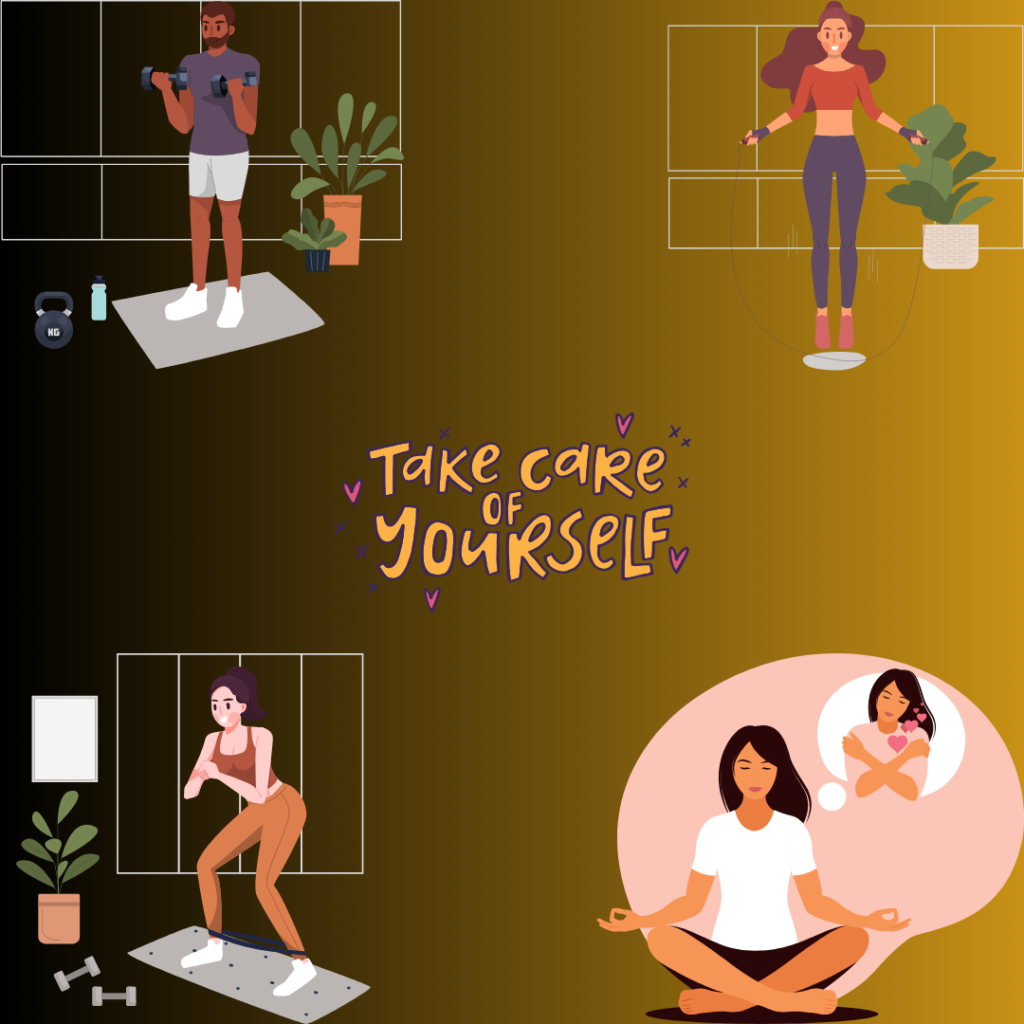In a fast-paced and demanding world, taking care of our mental health is paramount. While there are various approaches to maintaining a sound state of mind, one of the most powerful and accessible methods is regular exercise. Beyond its well-known physical benefits, exercise plays a significant role in promoting mental well-being. In this blog, we’ll explore the remarkable mental health benefits that exercise offers and how it can be an essential tool in enhancing our overall quality of life.

1. Reducing Stress and Anxiety
Exercise serves as a potent stress buster. Engaging in physical activity stimulates the release of endorphins, known as “feel-good” hormones, in the brain. These endorphins act as natural painkillers and mood elevators, effectively reducing stress levels. Regular exercise also helps to decrease the production of stress hormones, such as cortisol, leading to an overall calmer state of mind. Additionally, physical activity can divert attention away from everyday worries and provide a much-needed mental break.
2. Enhancing Mood and Alleviating Depression
Exercise has a profound impact on mood regulation and can alleviate symptoms of depression. When we exercise, our brain releases neurotransmitters like serotonin, dopamine, and norepinephrine, which are closely associated with mood and pleasure. These chemicals help combat feelings of sadness, anxiety, and depression, leading to an improved sense of well-being. In fact, studies have shown that exercise can be as effective as some antidepressant medications in treating mild to moderate depression.
3. Boosting Self-Esteem and Body Image
Regular exercise contributes to enhanced self-esteem and a positive body image. Engaging in physical activity allows individuals to set and achieve goals, leading to a sense of accomplishment and self-worth. As we become fitter and stronger, we often experience a greater appreciation for our bodies and what they are capable of achieving. Exercise can also provide a distraction from negative self-talk and comparisons, allowing us to focus on our personal growth and achievements instead.
4. Improving Cognitive Function and Mental Clarity
Exercise has a remarkable impact on cognitive function and mental clarity. Physical activity increases blood flow to the brain, delivering oxygen and nutrients that support brain health. Studies have indicated that exercise enhances memory, concentration, and overall cognitive performance. Regular exercise can also stimulate the growth of new neurons in the hippocampus, a region of the brain associated with learning and memory, further improving cognitive function.
5. Promoting Better Sleep
Adequate sleep is crucial for maintaining good mental health, and exercise plays a significant role in promoting quality sleep. Physical activity helps regulate the sleep-wake cycle, leading to improved sleep duration and quality. Regular exercise has been shown to reduce the time it takes to fall asleep, decrease sleep disturbances, and alleviate symptoms of insomnia. By incorporating exercise into our routines, we can experience more restful nights and wake up feeling refreshed and rejuvenated.
6.Stress Relief and Emotional Regulation
Engaging in physical activity, whether it’s a brisk walk, a yoga session, or a high-intensity workout, provides a healthy outlet to release pent-up emotions and stress. Exercise helps regulate emotions by reducing the levels of stress hormones in the body and increasing the production of endorphins, leading to a sense of calm and emotional well-being.
7.Social Connection and Support
Many forms of exercise, such as team sports, group fitness classes, or joining a running club, offer opportunities for social interaction and connection. Engaging in exercise with others fosters a sense of belonging, camaraderie, and support, which can have a positive impact on mental health. Having a supportive network can boost self-esteem, reduce feelings of loneliness, and provide a valuable outlet for sharing experiences and challenges.
8.Increased Energy and Vitality
Regular exercise increases energy levels and combats feelings of fatigue and lethargy. Physical activity stimulates the release of endorphins, which can provide a natural energy boost and improve overall vitality. By incorporating exercise into your routine, you may experience increased productivity, improved focus, and a greater sense of motivation in daily life.
9.Improved Body Awareness and Mindfulness
Exercise can enhance body awareness and promote mindfulness. When engaging in physical activity, we become more attuned to our bodies, noticing sensations, movements, and breathing patterns. This increased body awareness can help us connect with the present moment, reduce rumination, and cultivate a greater sense of mindfulness, which can have a positive impact on mental well-being.
10.Coping with Trauma and PTSD
For individuals who have experienced trauma or have been diagnosed with post-traumatic stress disorder (PTSD), exercise can be a valuable tool in the healing process. Physical activity can help reduce symptoms of anxiety and depression associated with trauma, improve self-esteem, and provide a healthy coping mechanism to manage stress and intrusive thoughts.
11.Increased Resilience and Mental Toughness
Regular exercise challenges us physically and mentally, helping to build resilience and mental toughness. Engaging in activities that push our limits and require discipline, such as endurance training or strength workouts, can translate into improved resilience in other areas of life. Overcoming obstacles and achieving fitness goals can foster a sense of accomplishment, boost confidence, and improve our ability to cope with setbacks and challenges.
Conclusion
The mental health benefits of exercise are vast and remarkable. Engaging in regular physical activity can reduce stress and anxiety, boost mood, alleviate symptoms of depression, enhance self-esteem and body image, improve cognitive function, and promote better sleep. The best part is that exercise is accessible to everyone, regardless of fitness level or budget. Incorporating exercise into our daily routines not only nurtures our bodies but also provides a powerful tool to nurture our minds. So, let’s lace up those sneakers, find an activity we enjoy, and embark on a journey towards improved mental well-being. Remember, every step counts!
